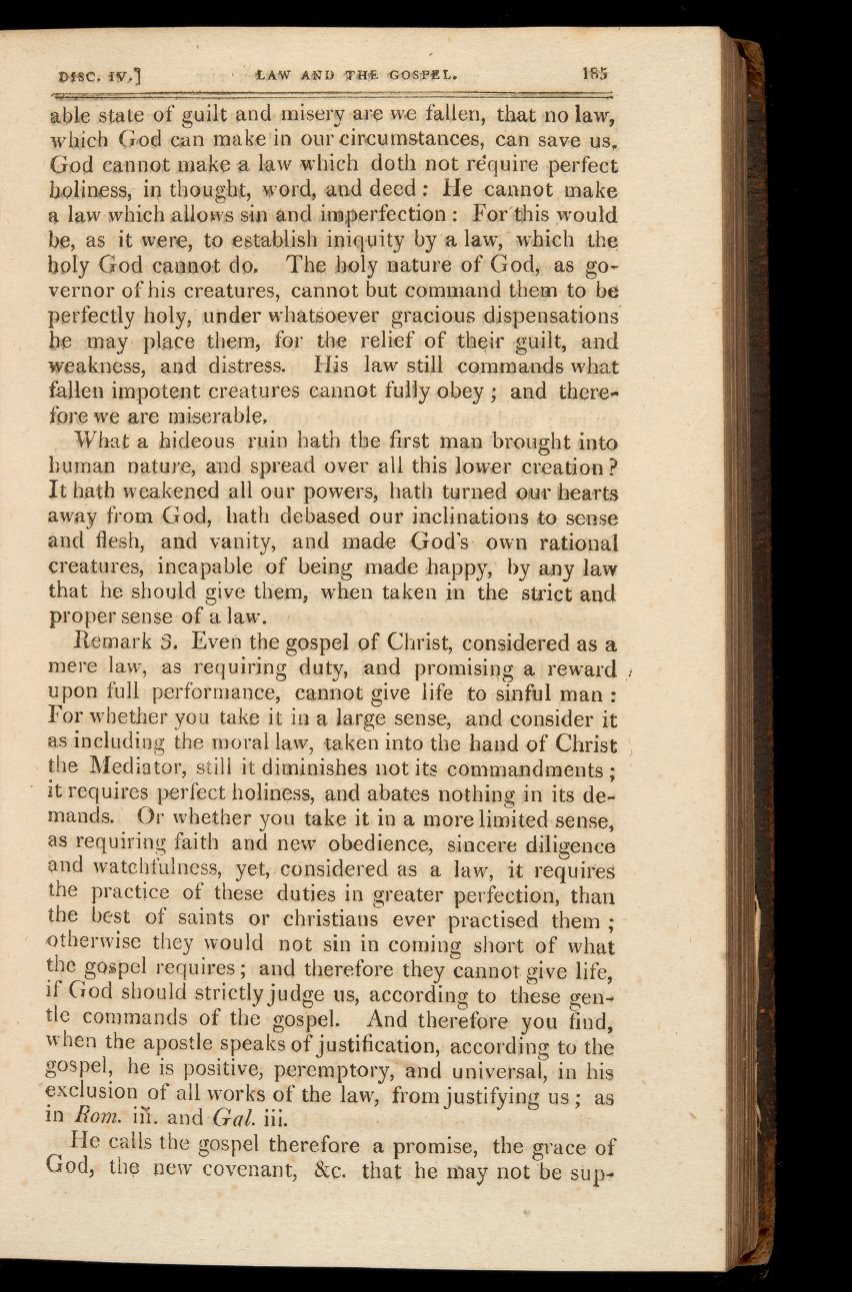

inne.
iv,]
LAW
AiQU
O6+P$L.
185
able state
of
guilt and
misery are
we
fallen,
that
no law,
which
God can make
in
our circurnstances,
can save us,
God cannot make
a
law
which
Both
not réquire perfect
holiness,
in
thought,
word,
and
deed
:
He cannot
make
a
law
which
allows
sin
and imperfection
:
For'this
would
be, as
it
were, to
establish iniquity
by
a
law,
which
the
holy
God cannot
do,
The
holy
nature
of
God,
as
go-
vernor
of
his
creatures,
cannot
but command
them to be
perfectly
holy, under
whatsoever gracious
dispensations
he
may
place
them,
for
the
relief
of
their
guilt,
and
weakness,
and
distress.
His
law still
commands what
fallen impotent
creatures cannot
fully obey
;
and there-
fore
we
are
miserable.
What
a
hideous ruin bath
the first man brought
into
human nature,
and
spread over all
this
lower creation
?
It
bath weakened all
our
powers,
bath
turned
our hearts
away from
God,
bath debased
our
inclinations to
sense
and
flesh,
and
vanity,
and
made
God's
own
rational
creatures, incapable
of
being made .happy,
by
any law
that
he
should
give
them, when
taken
in
the
strict and
proper
sense
of
a law.
Remark
S.
Even the gospel
of
Christ,
considered
as
a
mere
law, as
requiring
duty,
and
promising a
reward
,
upon
full
performance,
cannot
give life
to sinful man
:
For
whether
you take it in a
large
sense,
and
consider
it
as
including
the
moral
law,
taken into the hand
of
Christ
the
Mediator,
still
it
diminishes
not
its
commandments
;
it
requires perfect
holiness, and
abates
nothing
in its
de-
mands.
Or
whether
you
take
it
in
a
more limited sense,
as
requiring
faith
and
new
obedience, sincere diligence
and
watchfulness, yet,
considered
as
a
law,
it
requires
the
practice of
these
duties
in
greater
perfection,
than
the best
of
saints or
christians ever practised
them
;
otherwise
they would
not
sin in
coming
short
of
what
the
gospel
requires
;
and therefore they
cannot. give life,
if
God
should strictly
judge
us,
according
to
these
gen.
tie commands
of
the
gospel.
And
therefore
you
find,
when
the apostle
speaks
of
justification, according to the
gospel,
he
is
positive;
peremptory, and universal,
in his
exclusion
of
all
works
of
the
law,
from justifying
us
;
as
in
Born.
iit.
and Gal.
iii.
He
calls the gospel
therefore
a
promise, the grace
of
God, the
new
covenant,
&c.
that
he may
not
be
sup.

















